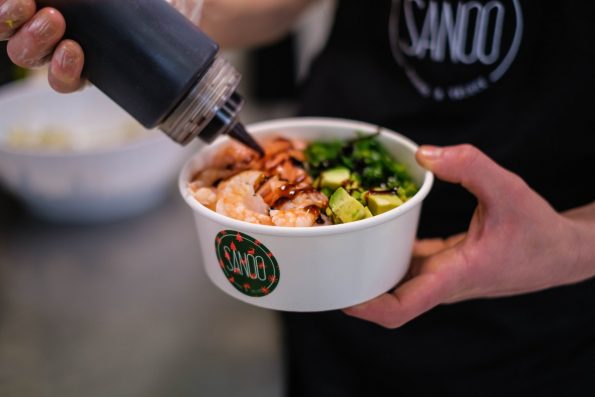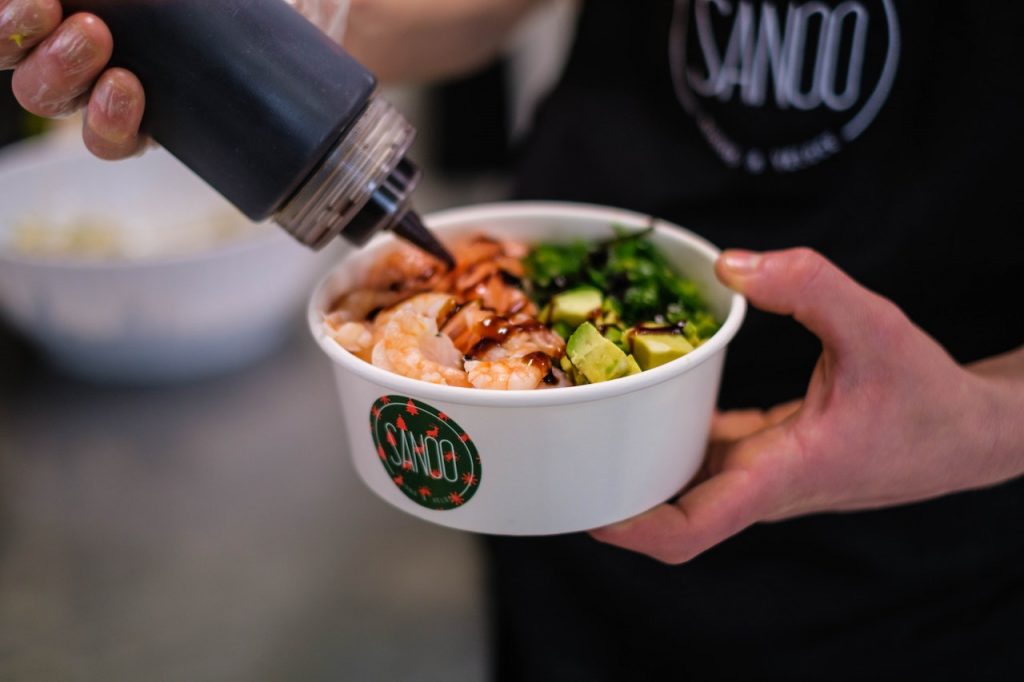The health and wellness industry has been growing at an unprecedented rate over the past few years. More and more people are becoming conscious about what they eat and how it affects their overall health. This has led to rising demand for healthy, nutritious food options.

Entrepreneurs have recognized this shift in consumer behavior and are coming up with innovative business ideas to cater to this demand. Health-centric establishments are increasing across cities as customers seek quality produce and ingredients. Concepts like farm-to-table restaurants, vegan bakeries, and organic coffee shops have gained immense popularity. As consumers become more aware of the food they eat, several profitable prospects have opened up in the startup food business space.
Let’s look at some of these.
1. The Shift Towards Probiotics and Prebiotics
Gut health has become an important health trend. Consumers are increasingly looking to integrate probiotic and prebiotic foods into their diet to maintain their gut microbiome. This has created a lucrative avenue for businesses selling probiotic drinks like kombucha, kefir, etc., and probiotic foods like yogurt, fermented vegetables, etc.
The global probiotics market is expected to reach USD 78 billion by 2026. With the steady growth in this sector, starting a business selling prebiotic and probiotic drinks can be highly profitable. Such functional beverages are becoming a staple for many health-conscious consumers.
The ease of making these at home and selling them through retail stores, supermarkets, or online stores provides excellent scope for entrepreneurs.
2. Organic Farm-to-Table Restaurants
Farm-to-table restaurants that use locally-grown organic produce are gaining popularity. Customers are drawn to the promise of fresh ingredients and authentic flavors. The menu changes seasonally based on ingredient availability, keeping things exciting. The emphasis on organic and the origin story adds to the appeal.
Sourcing directly from local farms ensures quality. It also assures customers that the produce is cultivated sustainably without pesticides or chemicals. While starting such a restaurant takes considerable research and planning, the loyal customer base and premium pricing make it a profitable startup food business venture.
3. Plant-Based Meat Alternatives
The popularity of plant-based diets and veganism has fueled the growth of meat alternatives. Brands like Beyond Meat and Impossible Foods have successfully replicated the taste and texture of real meat using plant ingredients. They have gained enormous consumer acceptance.
The plant-based meat market is projected to reach $8.3 billion by 2025. The growing flexitarian population who seek to reduce meat consumption provides a massive target audience.
Entrepreneurs can tap into this demand by making meatless burger patties, sausages, and meatballs and supplying them to restaurants and stores. With innovative recipes and marketing, plant-based meat alternatives offer excellent business potential.
4. Nutritional Snack Bars and Packs
Healthy snacking is on the rise. Consumers seek nutritious, on-the-go snack options that align with their diet goals. This presents an opportunity for businesses selling prepackaged snacks like protein bars, trail mixes, dried fruits and nuts, seaweed packs, etc.
The global healthy snacks market is projected to grow from $85.6 billion in 2021 to $152.3 billion by 2030. Innovative products can be developed with nutrient-dense ingredients like quinoa, amaranth, chia seeds, nut butter, etc. With the right packaging and marketing to fitness enthusiasts, these snacks can become bestsellers both online and offline.
5. Gluten-Free Bakeries
People with celiac disease or gluten sensitivity are adopting gluten-free diets. This has created a market for bakeries offering gluten-free bread, cakes, cookies, and other items. Gluten-free bakeries cater to this niche demographic with delicious baked goods sans gluten ingredients.
The global gluten-free bakery market size is predicted to expand at a CAGR of 8.2% from 2022 to 2030. Entrepreneurs can capitalize on this growth by starting dedicated gluten-free bakeries. This niche segment can become a profitable business with high-quality ingredients and transparent labeling. The offerings can also be marketed to the general health-conscious population.
6. Vegan Ice-Cream Parlors
Veganism is gaining momentum globally, which has increased the demand for dairy-free dessert options. Vegan ice cream parlors satiate this need by offering rich, creamy plant-based ice creams. They use ingredients like coconut, almond, avocado, and nuts to craft guilt-free, indulgent ice cream flavors.
The global dairy-free ice cream market is predicted to grow at over 7.12% CAGR from 2018 to 2028. Entrepreneurs can fulfill the demand for vegan desserts by starting ice cream parlors selling unique, innovative flavors. This can become a favorite neighborhood hangout spot with suitable recipes and marketing. Home delivery options further expand the startup food business scope.
7. DIY Salad Bars
DIY salad bars allow customers to create customized salads and bowls with farm-fresh produce and ingredients of their choice. The mix-and-match concept has become quite popular owing to the element of flexibility and personalization. DIY salad bars offer healthier meal options when eating out.
This bar format is gaining popularity across casual dining restaurants and cafes. Entrepreneurs can implement this concept in their establishments to drive more people to their place. The visual appeal of ingredients and the control given to customers make this a promising business idea.
8. Health Food Pop-Up Events
Pop-up events are temporary setups that create a buzz around new products, concepts, or businesses. Pop-up events centered on health foods provide entrepreneurs a platform to introduce their offerings to new audiences. They allow customers to try new, innovative products.
Pop-ups help generate publicity and gauge market interest before committing to a permanent establishment. Entrepreneurs offer low-risk opportunities to test ideas and build hype. Health food pop-ups like farmer’s markets, food festivals, tasting events, etc., can become places to network and grow one’s customer base.
Conclusion
The rising focus on health and nutrition has opened up many promising opportunities for food businesses to thrive. Consumers actively seek healthy, transparently sourced options as they become more conscious of their food choices.
So new ventures in the startup food business space can flourish with strategic planning and effective marketing to the target health demographic. The ideas and avenues discussed above indicate that the health food segment provides fertile ground currently for aspiring food entrepreneurs to grow successful brands.

